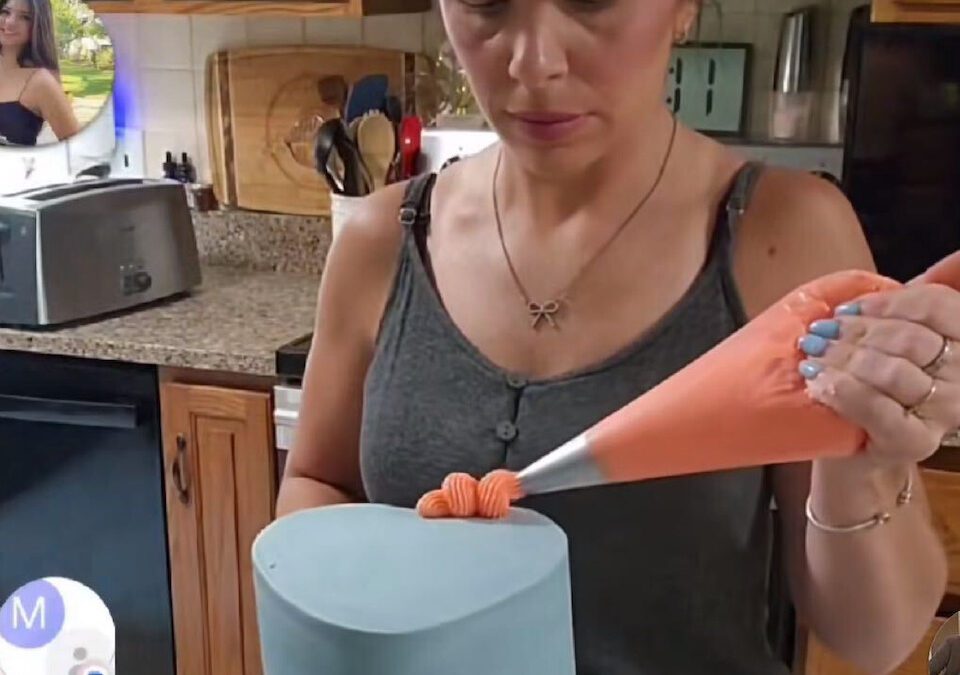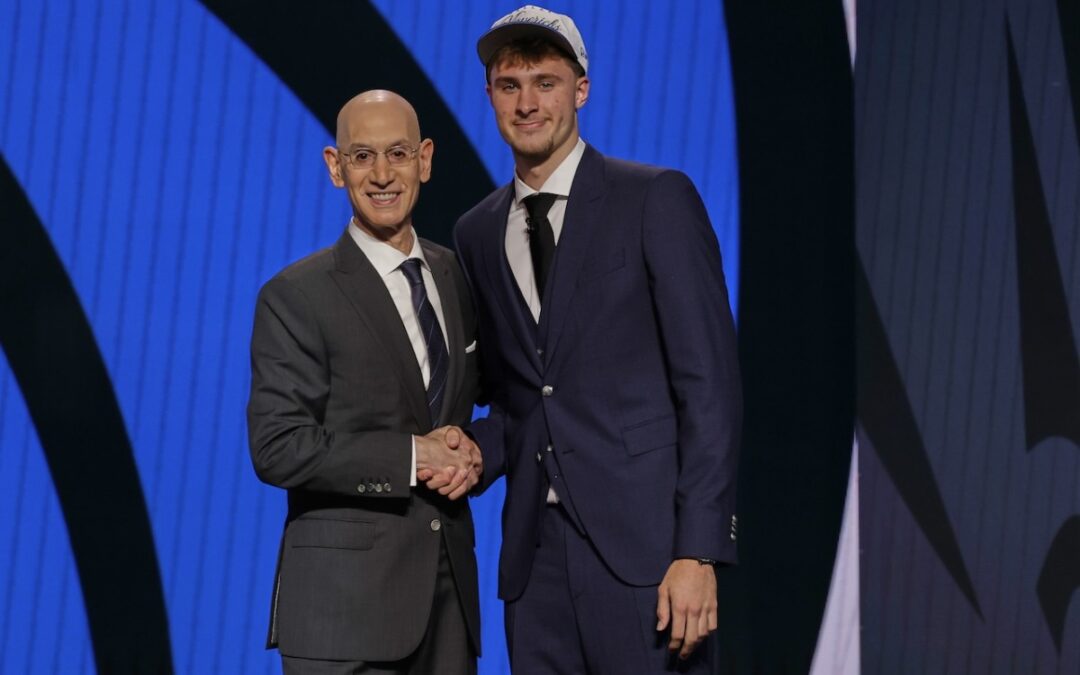
Connor Phillips, a former NIH postbaccalaureate fellow, working in the lab. (Photo: courtesy of Connor Phillips)
In 2024 alone, New Hampshire received $132 million in NIH research awards, producing an estimated $323 million in state economic impact. Since Trump was elected, Republicans have gutted the NIH and research—and show no signs of stopping.
At just 26 weeks pregnant, Connor Phillips’ mom went into labor in a New Hampshire hospital. A revolutionary medication slowed her labor and gave her son’s developing lungs a critical extra week.
That medical breakthrough didn’t just help Phillips survive, it gave him a chance at walking, living independently, and thriving with cerebral palsy.
Today, Phillips is a neuroscience researcher. His life’s work? Advancing therapies for people with disabilities—just as science once did for him.
But Phillips fears that the next generation of premature babies and potential scientific innovators in New Hampshire and across the nation may not be so lucky. Sweeping federal budget cuts to the National Institute of Health (NIH), part of President Donald Trump’s recent policies, are not just threatening everything from local health programs to the state’s research-driven economy—they’re actively shutting them down. It’s a huge blow to people whose very lives depend on government-funded science.
How science saved a life
“I was born significantly prematurely,” Phillips said. “My mom went into labor at around 26 weeks. Only because of medications provided by the hospital—medications that were developed through NIH-funded research—was my birth delayed, my lungs could develop, and I got the chance to walk and thrive.”
NIH’s influence on Phillips’ life didn’t stop at the delivery room. As a child, he received government-sponsored physical therapy and other vital interventions, enabling him to reach milestones many preemies with cerebral palsy never achieve.
“So much of what I can do today is thanks to that NIH-funded science,” Phillips said.
Those early interventions helped inspire Phillips’ future.
“I went into college really interested in developing better therapies for people with disabilities,” Phillips said. “My path started in mechanical engineering, working on robotics for kids with cerebral palsy, and led me straight to a post-baccalaureate fellowship at the NIH.”
From lab coat and hope to locked doors and fear
Phillips was excited to join the NIH, a world-renowned biomedical research institute.
“[The NIH] sets the standard for science across the globe,” Phillips said. “People come from everywhere to participate in research here, which advances discoveries that literally every American will benefit from.”
But after Trump took office earlier this year, Phillips watched the world-class institute and its research grind to a halt.
“I arrived when the mission was about improving the health of Americans,” Phillips said. “But this year there were mass layoffs, purchasing freezes for even basic lab supplies, and this climate of fear. Security officers would patrol the halls. Scientists were fired just for leaving laptops unattended.
“Everything was being cut off, even volunteer positions, which are free labor. Some of the country’s top experts were let go with no warning, especially older scientists.”
Phillips’ fellowship with the NIH ended in February. While he wasn’t part of the mass layoffs, he watched some of his colleagues fall victim to the cuts.
And it wasn’t just the staffing that was affected.
“I saw research halted midstream,” Phillips said. “Existing grants canceled. For all the talk about efficiency, this was pure waste. Millions lost in ongoing projects, just thrown out because of politics.”
What’s at stake for New Hampshire?
In 2024 alone, New Hampshire received $132 million in NIH research awards, producing an estimated $323 million in state economic impact. Local hospitals, universities, and medical centers, such as Dartmouth, Elliot Medical Center, and the University of New Hampshire, depend on these funds not just for research, but for jobs and patient care.
“Cut this funding and it’s not just science that suffers,” Phillips said. “Businesses close. People lose jobs. The money for developing drugs, clinical trials, and new therapies for kids, it just disappears. And services for the people who need it the most vanish along with it.”
Nationally, the cuts go even deeper.
“Already, cancer funding in the United States is down by 31%,” Phillips said. “You hear talk about making America healthy again, but how is that possible if we’re not curing cancer?”
Loss of innovation at stake
To Phillips, the budget cuts aren’t about efficiency or strategic government spending.
“It’s about finding money to pay for tax breaks—at the cost of health, innovation, and lives,” Phillips said. “With the trillions spent on these breaks, we could have cured diseases, built the next generation of researchers, and kept America at the forefront of science.”
The attacks on NIH aren’t just economic. Phillips said it’s about political intimidation, targeting of research on diversity and health disparities, and a climate of censorship.
“If we’re not supporting diversity in clinical trials, we can’t solve problems effectively or serve all Americans,” Phillips said. “Now, grants are being flagged and canceled for words like ‘diversity’—even when it refers to cell types, not people. This is pure politics, not science.”
The cost
According to Phillips, there is an even bigger cost to all of this.
“When government works, you don’t have to think about it,” Phillips said. “You get health care, drive on paved roads, send your kids to school. Public health is part of that, too. NIH funding is why our hospitals have new therapies, why small businesses and big research centers thrive in our state.
“Without it, people who could have been saved will get sick, people who could have contributed to our state’s economy won’t get the chance, and tomorrow’s medical breakthroughs won’t happen here.”

How a New Hampshire mom built a booming baking business on social media
A version of this story appeared in the Granite Post's newsletter. Subscribe here. When Leah Boudreault first picked up a piping bag more than a...

We asked, you answered: Should hikers have to pay a rescue fee?
A version of of this story appeared in the Granite Post's newsletter. Subscribe here. New Hampshire Fish and Game handles nearly 200...

2 New Hampshire city dwellers embracing backyard food independence
We spoke to two New Hampshire families embracing food independence by growing what they need in their own backyard. It’s one thing to grow the...

6 activists from New Hampshire you should know about
Learn about these trailblazing activists from New Hampshire who used their platform for the greater good. Despite the recent political shake-up in...

Cooper Flagg the new Maine man for the Mavericks as the No. 1 pick in the NBA draft
By BRIAN MAHONEY / AP Basketball Writer NEW YORK (AP) — Cooper Flagg is the new Maine man in Dallas. The Mavericks took the Duke forward with the...

Sandra Oh gives Dartmouth grads the ultimate life tip
Award-winning actor Sandra Oh gave the Dartmouth Class of 2025 a sendoff to remember at the commencement on Sunday, complete with a dance party. The...





